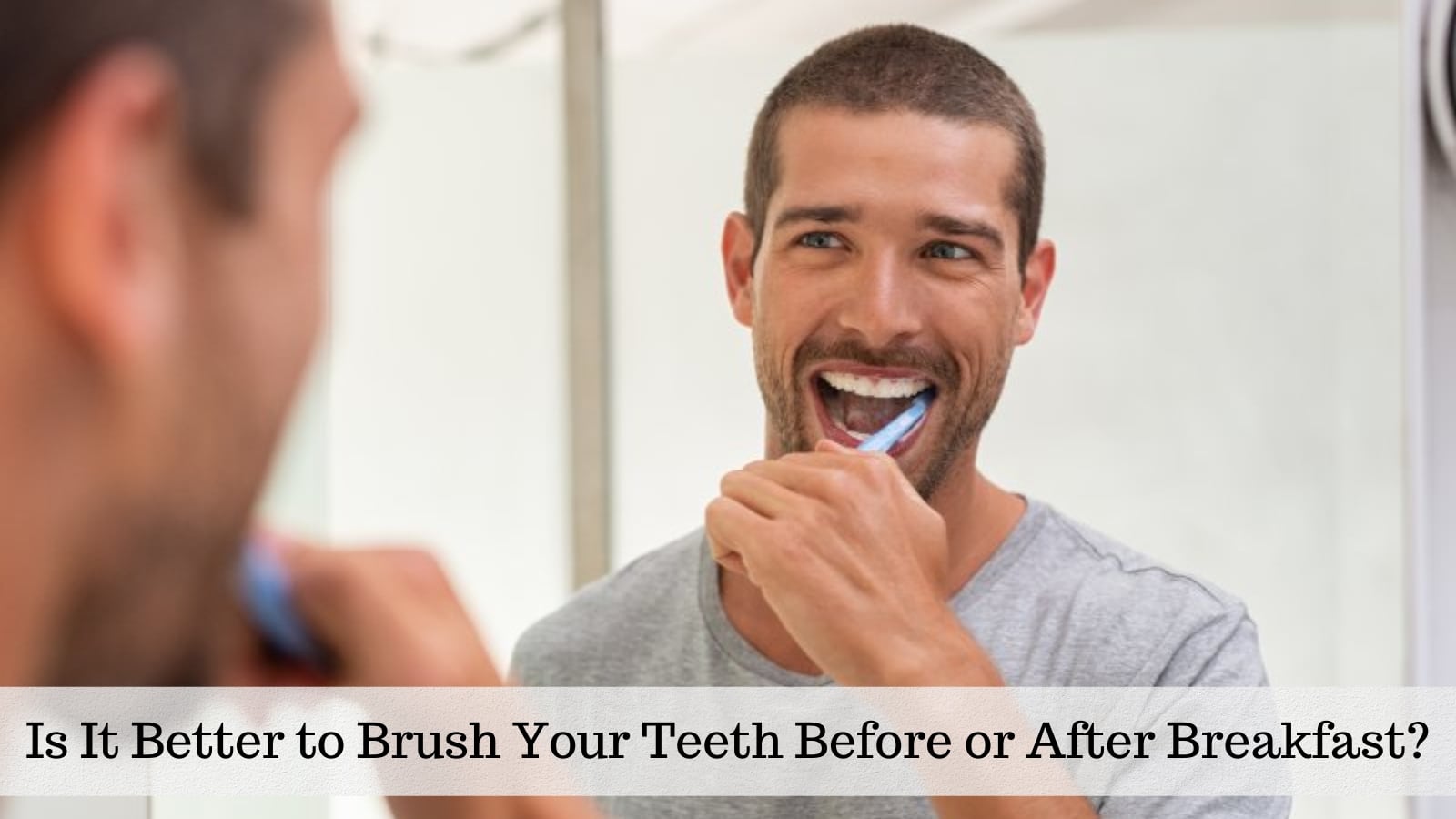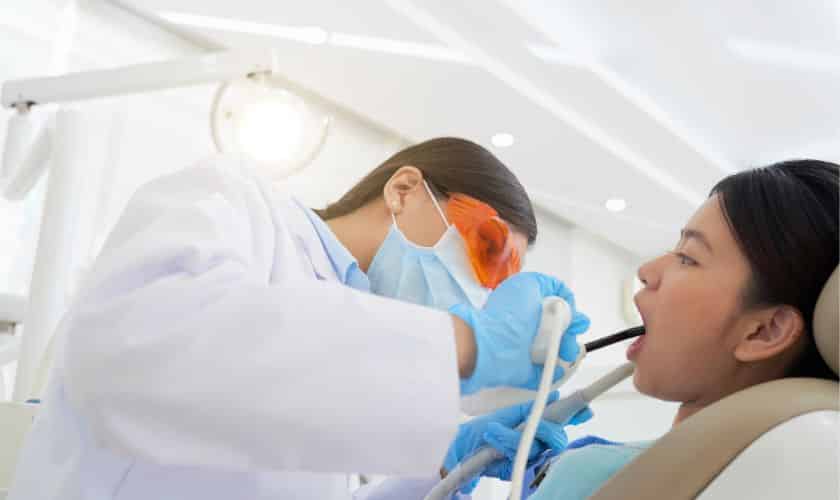
You’ve woken up, ready to start your day. The smell of breakfast fills the air, and you’re wondering—should you brush your teeth before or after eating? The debate leaves many unsure of the best approach for their dental health. Both options have pros and cons, and the decision isn’t as simple as you might think. So, which is better for your teeth, and what do dental experts recommend?
Let’s dive into the details of each choice to help you make the best decision for your morning routine.
The Case for Brushing Before Breakfast
Brushing your teeth first thing in the morning has its clear advantages before you eat anything. Here’s why many people opt for this approach:
1. Removes Overnight Bacteria
While you sleep, your mouth is a playground for bacteria. These bacteria thrive in the dry environment of your mouth, producing plaque and acids that can harm your teeth. When you brush right after waking up, you clear away all the harmful substances that build up overnight. This freshens your breath and helps protect your teeth from bacteria before you eat.
2. Protects Your Enamel
Many of the foods we enjoy for breakfast—such as fruit, juice, or yogurt—are acidic. The acids temporarily soften your enamel when you eat them, making your teeth more vulnerable. Brushing your teeth before breakfast ensures you aren’t brushing away softened enamel, which could lead to damage over time.
3. Prepare your Mouth for Food
Brushing before breakfast also applies a protective fluoride barrier from your toothpaste, which can help strengthen your teeth and neutralize the acids in your food. This fluoride layer can act like armor for your teeth, making it a great first defense before you start eating.
The Case for Brushing After Breakfast
On the flip side, there are valid reasons to brush your teeth after breakfast. If you prefer the sensation of a completely clean mouth after eating, this option may feel more intuitive. But is it better for your teeth?
1. Removes Food Particles
Brushing after breakfast immediately clears away any food debris left behind from your meal. If you’ve just eaten a sticky or sugary breakfast, brushing right afterward can help prevent these particles from lingering on your teeth, where they could fuel bacterial growth throughout the day.
2. Freshens Your Breath Post-Meal
Nothing beats the feeling of a fresh mouth after eating. If you brush after breakfast, you’re starting your day with teeth that look clean and feel squeaky clean. It’s an instant breath refresher, mainly if your breakfast includes potent flavors like coffee, garlic, or onions.
3. Removes Acidic Residue from Foods
After you eat, especially if you’ve consumed acidic foods or beverages, there’s often a residual layer of acid left on your teeth. You can scrub away those acids by brushing them after breakfast before they can erode your enamel. However, timing here is crucial.
The Timing Dilemma: How Long Should You Wait?
If you’re leaning toward brushing after breakfast, you might want to wait a bit before grabbing your toothbrush. As mentioned earlier, acidic foods and drinks can temporarily soften your enamel, making it more vulnerable to brushing. Experts generally recommend waiting at least 30 minutes after eating before brushing. This gives your saliva time to neutralize the acids and allows your enamel to re-harden, reducing the risk of damage.
If you’re in a hurry, consider rinsing your mouth with water after eating to wash away some of the acids and food particles before brushing. This simple step can go a long way in protecting your teeth.
The Ideal Morning Routine: Striking a Balance
So, should you brush your teeth before or after breakfast? There’s no universal answer that fits everyone, but there are some strategies you can adopt to find what works best for you.
1. Brush Before Breakfast, Then Rinse After
A middle-ground approach that offers the best of both worlds is brushing your teeth as soon as you wake up and then rinsing your mouth with water or mouthwash after breakfast. This method allows you to start your day with clean teeth and fresh breath while rinsing away any remaining food particles or acids from your meal.
2. Opt for Non-Acidic Breakfasts
Another solution is to focus on breakfasts that aren’t acidic, such as eggs, oatmeal, or whole grains. If you regularly eat these types of foods, you reduce the risk of enamel damage and can brush more confidently after your meal without waiting.
3. Use Fluoride Toothpaste
Whether you brush before or after breakfast, use a toothpaste containing fluoride. This is key for strengthening your enamel and protecting your teeth from decay. Fluoride toothpaste can also help neutralize acids, safeguarding your enamel throughout the day.
Common Misconceptions About Brushing
Let’s clear up a few myths that often surround brushing in the morning:
1. Brushing After Breakfast Is Always Best
Brushing after breakfast can remove food particles, but doing it too soon after eating acidic foods can harm your enamel. Always wait a bit, or consider brushing before breakfast to avoid the risk altogether.
2. You Don’t Need to Brush in the Morning If You Brush at Night
Even if you brush before bed, bacteria build up in your mouth while you sleep. A morning brushing session is essential for clearing away overnight plaque and ensuring your mouth is ready for the day.
3. Brushing Twice a Day Is Overkill
That’s not true! Dental health professionals recommend brushing twice a day at a minimum. This ensures plaque and bacteria don’t have a chance to build up and cause decay or gum issues.
Brushing your teeth before or after breakfast is a personal choice, depending on your morning habits and what works best for your teeth. If you’re worried about enamel erosion from acidic foods, brushing before breakfast might be the way to go. On the other hand, if you like having a clean mouth after eating, waiting 30 minutes before brushing is a smart compromise.
Either way, what matters most is that you brush consistently and effectively. Ensure you’re using the proper technique and toothpaste, which will protect your smile, no matter when you choose to brush. And schedule dentist visits regularly to keep your dental health the best.


